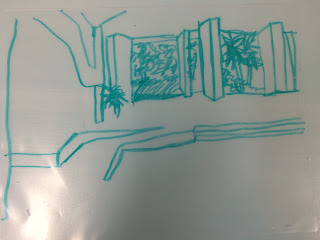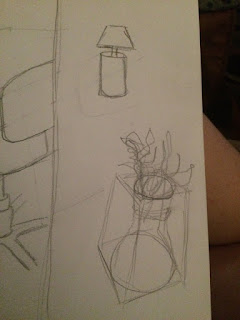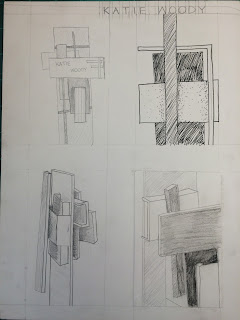Doyle Chapter 5 Summary
Chapter 5 in the Doyle book starts
by addressing that the inclusion of human figures and automobiles in color
design drawings give the viewer of those drawings a comparative reference by
which the sizes of all parts of the ideas expressed can be quickly judged. Also
they represent the human activity that will be happening in the space. Keeping
these aspects of the drawing simple is a good thing, but adding detail that’s appropriate
to the drawing is essential. Poorly drawn figures can distract the viewer from
the point you are trying to get across. Human figures should blend in to the
design and act as a subtle reference.
The most important quality of a scale figure is the naturalness of its
proportions. Clothing drawn on the figures should be appropriate for the type
of place you are creating and its climate. Personally, I found that drawing
clothes presented a higher level of difficulty since the wrinkles portray many shadows
and highlights. The horizon line plays an extremely important role wen drawing
figures. No matter where the figure is in the image, the heads of all the
people will be on or near the horizon line. When doing my perspective drawing,
I found the horizon line made it much easier to make my figures proportional
because it gave me a starting point. When inserting a digital image of figures
into a drawing, contrasting them down to a simpler image is key. Trace the
original image to create a simpler line drawing on the figure. Then you can go
back in Photoshop and make them look more like a hand drawing.
When
drawing automobiles, start with their most basic shape first, and then go back
in and add detail. This will help to approximate a more accurate size and scale
of the vehicle in reference to the drawing. Using minimum detail on cars is
important so that the attention of the viewer remains on the designed elements
within the drawing. When drawing the glass on an automobile, streaks of white
pencil were applied to give the feeling of glass. This chapter made me excited
to explore the use of color.



































0 comments:
Post a Comment